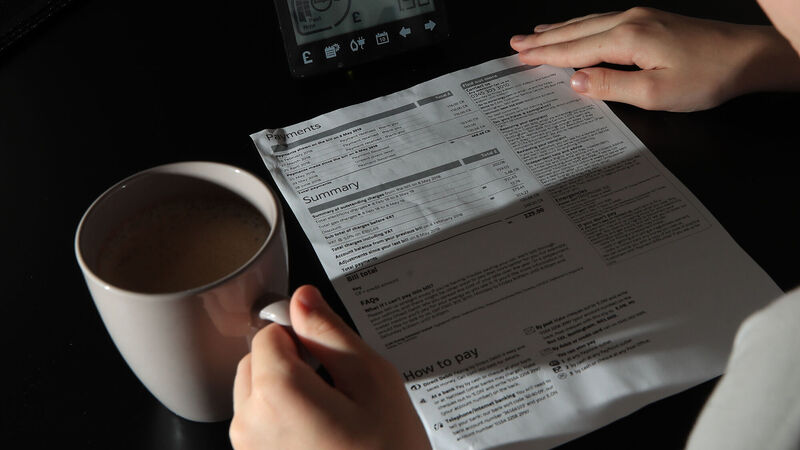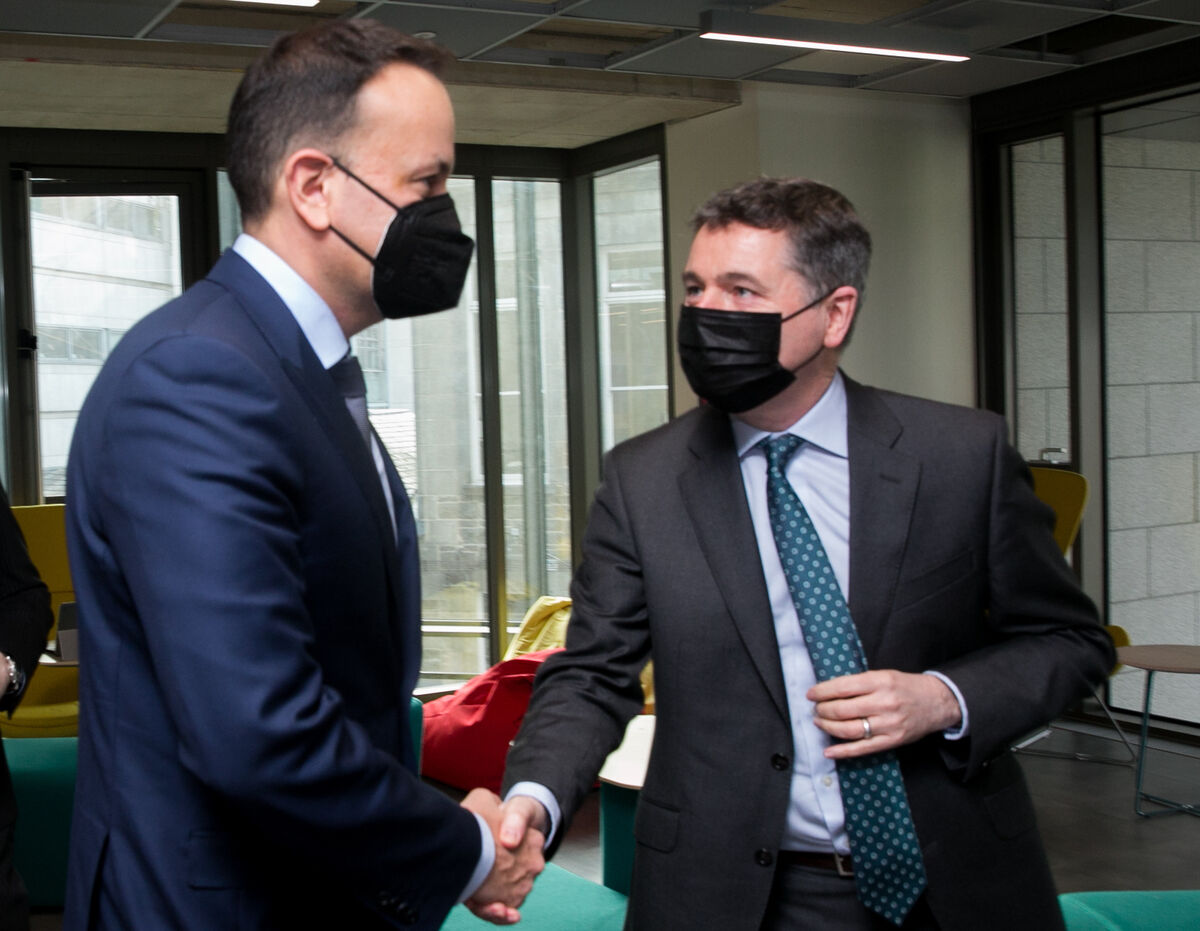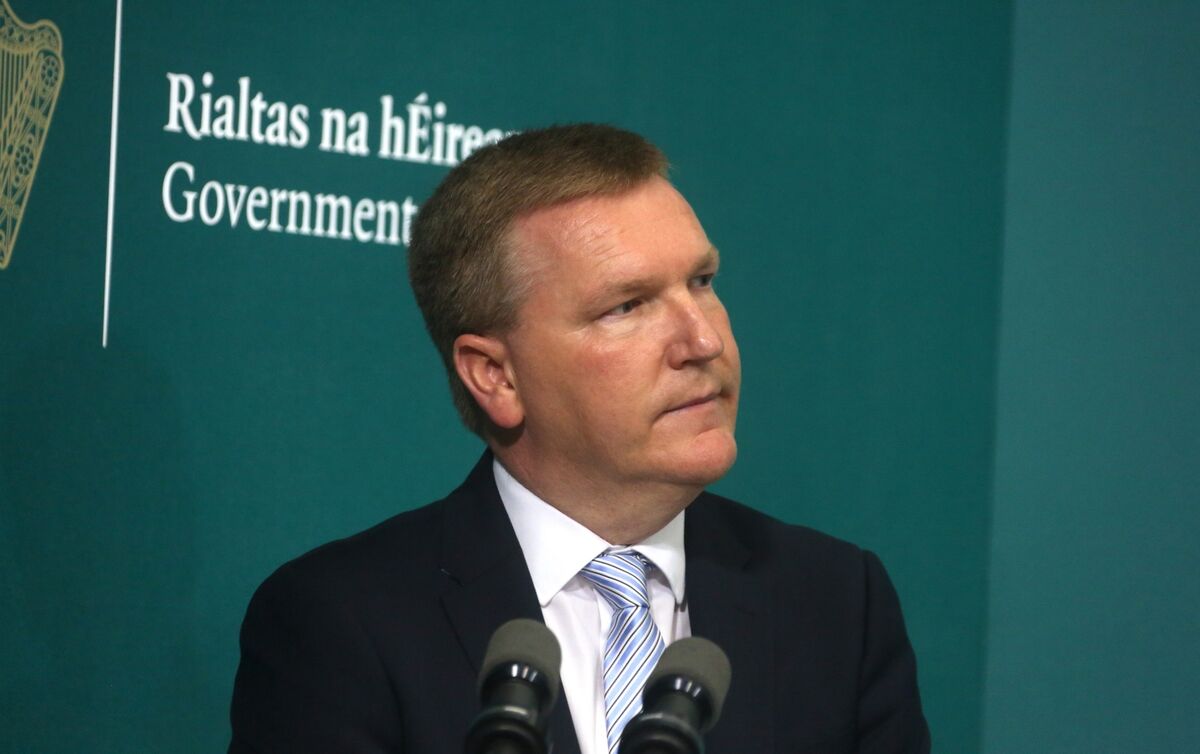Government agrees €200 energy credit and 20% public transport fare reduction

The universal payment will be credited to energy bills in the coming weeks and is estimated to cost €400m.
A doubling to €200 of the proposed energy credit to be paid to all households has been approved by the Government.
The universal payment will be credited to energy bills in the coming weeks and is estimated to cost €400m.
It has also emerged that an extra €125 will be paid to fuel allowance recipients.
It will be paid around St Patrick's Day.
The Drug repayment scheme will be enhanced under supports package agreed by Government this evening.
A 20% reduction in public transport fares has also been approved for services including Bus Eireann, Irish Rail, DART, Dublin Bus, Luas and Local Link.
The fare changes will take effect in April until the end of the year.
The full list of new measures include:
- an increase in the energy credit to €200 including VAT, estimated to impact just over two million households
- a temporary 20% reduction in public transport fares will apply from April until the end of the year
- a lump-sum payment of €125 on the fuel allowance will be paid in early March to 390,000 recipients
- a temporary reduction in fares of 20% from the end of April to the end of the year impacting approximately 800,000 daily users.
- a further reduction in the Drug Payment Scheme to €80, benefiting just over 70,000 recipients
- the working family payment budget increase announced on Budget Day will be brought forward from the first of June 1 to April 1
- reduced caps for multiple children on school transport fees to €500 per family post-primary and €150 for primary school children
Minister for Finance Paschal Donohoe said: "This evening we agreed a further set of measures, we have added just over €300m euro of additional measures to help those who are affected by rising prices.
"Overall, in additional funding today, our overall package now is €1.5bn."
He said that so many people are concerned with the cost of living.
"The social welfare changes will form a core part of the package and there are some measures that are tailored and specific which means there are some people who won't avail of them, but the main core is a universal measure that all will benefit from," he said.
The finance minister said it is not appropriate to be making decisions relating to taxation outside of budget day when pressed on why the Government did not cut motor tax.
"For those experiencing great difficulty in rising cost of fuel, this is the guiding reason behind the electricity refund," he said.
He added: "I absolutely appreciate the anxiety and concerns so many are facing, particularly around the price of energy but we have to respond back to other issues in people's lives.
"We have a national debt of €230bn and we have to be confident in the decisions we make help people.
"We make decisions with regard to high our national debt is. We don't want to find ourselves in greater level of difficulties in future with an even higher level of national debt."
Mr Donohoe said the ECB interest rates have to be taken in the context of economic recovery and income.
"From the point of the Euro area, of course, we acknowledge concerns around inflation, the challenge we face must be put in the context of economies back at work and economies growing. We all experienced economic consequences a decade ago when it was not able to return to growth.
"I believe if the EBC had changed its monetary policies in a way different to how they have done so far, it could have impacted that recovery that means so much to many."

Minister for Public Expenditure Michael McGrath said that there are encouraging signs that the economy is recovering well, and improved employment prospects, but the government is acutely aware of the struggle people are facing in the cost of living.
"The situation in which we find ourselves does necessitate a wider government response, the state has a duty to protect those most vulnerable in society," he said.
Mr McGrath said the reduction in public transport fares represents the vast majority of journeys people take and will be implemented by late April and will run till the end of the year.
He added that those in real difficulty should contact their community welfare officer, because data shows that the number of people engaging with the service is not increasing and reminded people that the service is there.
"There is significant discretion and if you're in need of help, please contact them."
On public transport, Mr McGrath said the Government wants to make it as accessible as possible and sustainably funded.
"It's fair to say it's in a state of flux at the moment, we gave €200m alone this year to sustain services," he said.
"There are open questions whether we get back to where we were in terms of capacity, depending on remote working taking hold in future. There is an element of uncertainty, and my job is to ensure public transport is sustainable into the future and that's why we're only committing to the end of the year."
The Cabinet sub-committee on the economy met at 4pm for over two and a half hours to sign off on the suite of measures aimed at tackling the cost of living.
The meeting, chaired by Tánaiste Leo Varadkar, followed a week of deliberations among ministers led by Finance Minister Paschal Donohoe and Public Expenditure Minister Michael McGrath.
Arriving at the meeting, the public expenditure minister told the media that final decisions are still to be made, but people need to be able to feel the benefit quickly.
“It’s not possible for the Government to fully address the entire impact of the current level of inflation," he said.
The Government has been examining ways to temporarily waive the costs imposed by the State on the public, including so-called nuisance costs.
Waiving of hospital fees were also considered.

However, whatever the package, it won't meet the full needs of struggling families, the minister for public expenditure has admitted.
Michael McGrath has warned that the Government must be "careful" in how public money is spent and this will be balanced against the reality that people are under pressure.
"We do recognise that the current inflationary cycle that we are in won't last forever," he said. "The forecast is that it will ease in the months ahead.
"We don't want to end up chasing and ultimately driving inflation to a higher level and that is the advice that we are receiving from an economic perspective," Mr McGrath said.
"So what we will see today are a small number of measures that can be implemented quickly that will provide some relief to people — perhaps not as much as people would like or as much as many people would need."
Mr McGrath indicated that a number of announcements made in October's budget would be brought forward and implemented sooner.
He cited the 50% fare reduction for young people using public transport, a €10 increase to the working family payment, €200 rise in Susi grants, and increases in the back to school clothing and footwear allowance.
Opposition parties have rounded on the Government, claiming measures to help ease the rising cost of living will "only scratch the surface".
Last night, Tánaiste Leo Varadkar said a substantial package was being prepared to help ease the burden for everyone.
Confirming the energy credit, he said there would be a universal element that would benefit all households and targeted elements for those most in need.
Speaking in the Dáil this afternoon, Mr Varadkar admitted that no measure that the Government announces later today will be enough to ease the burden on families and individuals.
However, he hit out at those on the opposition benches, claiming their press releases are "already written" ahead of any announcement.
"Promises are cheap, promises are easy and the public are more and more seeing through them," Mr Varadkar told his political opponents.
Sinn Féin deputy Dáil leader Pearse Doherty said that households are now cutting the amount of essential heating the use and food they buy and said the Government simply "doesn't get it".
He called on the Government to bring forward a targeted cost of living cash payment of €200 for those on salaries of €30,000 or less and a €100 payment for individuals on incomes of between €30,000 to €60,000.
"We need to get money into people's hands now, for some they will use it to meet their gas and electricity bills, for others it will be a fill of oil and for others it will be ensuring that they have enough diesel in their cars so that they can get to work."
Mr Doherty also called for a ban on rent increases for the next three years and the cancellation of the planned increase in carbon taxes from May.
Mr Varadkar told the Dáil that inflation is hurting people in their pocket.
"A lot of people are really squeezed and some people are having to make very hard decisions about what they spend their money on, whether it's energy, fuel or groceries.
"The Government gets that, the Government understands that," he said.
Labour TD Aodhán Ó Ríordáin said Mr Varadkar was "engaged in Bertienomics".
He said the €450m package due to be announced by the Government is a "drop in the ocean" when it comes to addressing the rising costs faced by families.
Solidarity PBP TD Richard Boyd Barrett called for an immediate rent freeze to help tenants.
He said a living wage also must be introduced to help low-paid workers.





